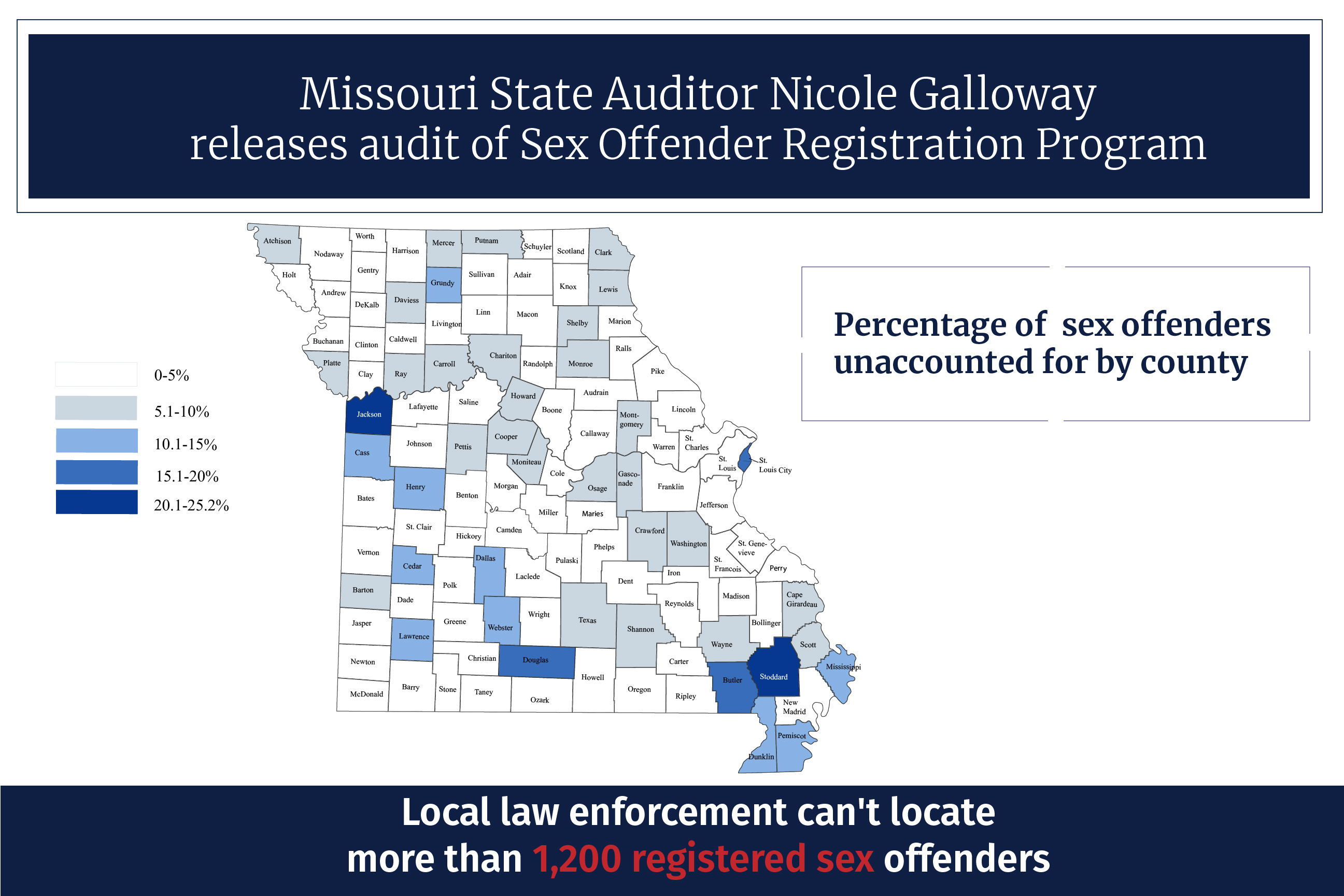JEFFERSON CITY, Mo. — The Missouri Sheriffs’ Association and the Missouri State Auditor are at odds following the release of a report that found more than 1,200 sex offenders unaccounted for.
The executive director of the sheriffs’ association said the “false assertions” in the report “incorrectly placed law enforcement in a negative light” and that the “numbers and information just don’t add up.”
State Auditor Nicole Galloway called the response “unfortunate,” saying her office “met with the head of the Missouri Sheriffs’ Association to seek information and input about issues noted in the report, but the association ultimately ‘declined’ to provide any responses to those inquiries.”
On October 1, 2018, Galloway released an audit of Missouri’s sexual offender registration program. The report determined that due to inadequate enforcement of the registration requirements at the local level, 1,259 registered sex offenders failed to follow the law. Of those that were not registered, almost 800 offenders would be classified as the most dangerous.
More than 1,200 sex offenders unaccounted for, not complying with law
“[T]he numbers asserted by Auditor Galloway just don’t hold up under review. Had she simply contacted the sheriffs for input before releasing the report and not rushed to judgment, the Auditor would have discovered the number of those she asserts to be unaccounted for simply is not true,” said Kevin Merritt, Executive Director of the Missouri Sheriffs’ Association. “Some offenders are in prison and accounted for, some have passed away and accounted for and many others are in the process for criminal prosecution which requires an investigation, evidence to obtain a warrant and then interaction with the prosecutor and the Circuit Court.”
He added that the sheriffs take this matter “very seriously.” The failure of a sex offender to register as required is a crime and handled with the same protocols as with other crimes, Merritt noted.
“The purpose of a centralized registry is so the public can rely on a single resource to access information about registered sex offenders in their community and make informed decisions for their families,” the Auditor’s Office said in a statement. “Based on the response from the association, there are sheriffs who have information not updated or included in the publicly available tool. If this audit spurs those officials to update and provide that information to the public, then that is a positive result.”
The information in the report was obtained the Missouri State Highway Patrol — who administers the Sex Offender Registry — on February 14, 2018, and May 23, 2018. Local law enforcement, typically the county sheriff, is responsible for providing accurate information to the sex offender registry for their jurisdiction, the auditor’s office noted.
“During the audit process, audit staff met with the head of the Missouri Sheriffs’ Association to seek information and input about issues noted in the report, but the association ultimately ‘declined’ to provide any responses to those inquiries,” the auditor’s statement said.
Merritt calls that assertion the association declined to respond and “flat out lie.” He said he personally met with an audit manager on July 19, 2018, and “shared factors that could influence the low totals of outstanding warrants for noncompliant sex offenders.”
The issues Merritt mentioned do appear in the audit report, but the report noted that the association did not provide a formal response.
“Had this auditor done her due diligence, as did previous auditors, she would have uncovered the truth behind the numbers of offenders she alleges are unaccounted for in Missouri,” stated Merritt.

Alisha Shurr was a reporter for The Missouri Times and The Missouri Times Magazine. She joined The Missouri Times in January 2018 after working as a copy editor for her hometown newspaper in Southern Oregon. Alisha is a graduate of Kansas State University.













